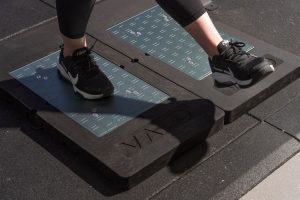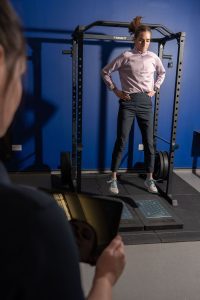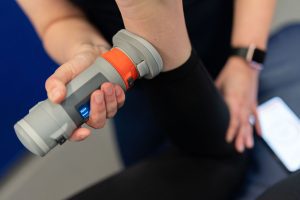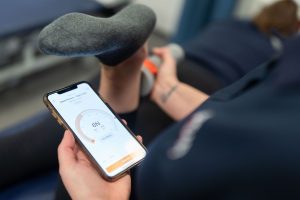VALD
- 8th March 2024
- Rehabilitation
At SPEAR we are super excited to announce we have integrated new VALD technology into our services. VALD is a trusted tool to measure, manage strength, power, movement, balance, asymmetry and more.
Our AVS clinic is now equipped with both dynamometers and force decks for comprehensive assessment and treatment.


The new force plates which have proven to be highly beneficial in analysing the strength, power, and balance of the lower limbs. By utilising these plates, we can accurately evaluate your functional abilities during activities such as squats, jumps, and hops. These are the essential components that make up most sports. Are you fit to return to sport? The results from the force plates can give you valuable feedback on the key areas that require improvements to ensure a smooth return. You can also compare your performance with age matched individuals (for those with a competitive streak!!).We can use the force decks with patients after lower limb surgery, following acute and chronic injuries, and with patients purely looking to have a more focussed gym programme.


We can utilise the dynamometer to assess the specific strength of muscles, focusing mainly on the hip and shoulder regions. Instead of merely indicating weakness in your shoulder, we are able to quantify its strength and inform you about the extent of the deficit compared to the other side. Enabling patients to not only experience physical improvements but also visually track progress through routine testing.This has proven to be very motivational for our patients.
We see lots of patients with shoulder pain in clinic and strengthening the rotator cuff is often required in the rehabilitation of the shoulder. The rotator cuff is important to hold the head of humerus in the joint to create stability. If strength is not there the head can move too much and can repeatedly pinch structures when the shoulder joint moves.
If, like many of our clients, you are experiencing repetitive pinching, it is crucial to address this issue promptly to avoid exacerbating an acute injury into a chronic, long-term problem. Strengthening the rotator cuff plays a key role in the rehabilitation process, helping to prevent further flare-ups in the future. During the initial phase of an injury when pain is prevalent, patients are often motivated to perform exercises as pain acts as a constant reminder. However, as pain diminishes over time and becomes less frequent, motivation to continue with “the physio exercises” decreases. It is important to remain committed to the rehabilitation process even when pain levels decrease to ensure long-term recovery and prevent future issues. In busy lifestyles, because” the Physio says so” just does not cut it!!! Bring in the handheld dynamometer. By utilising the handheld dynamometer, we are able to assess shoulder flexion strength, enabling patients to not only experience physical improvements but also visually track progress through routine testing
If you would like to book a session with a Physiotherapist to take you through these tests, whether you are a new patient or you are currently on treatment please contact clinic and we can arrange to see you.